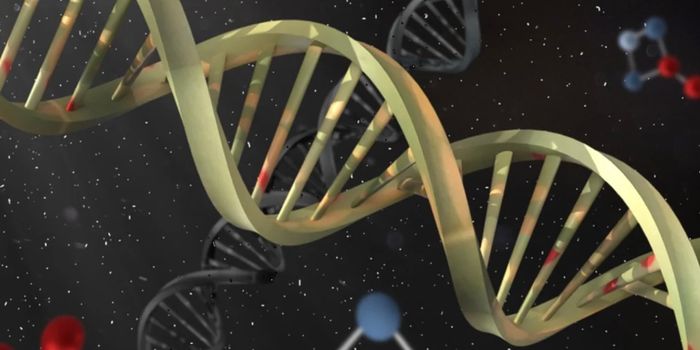How Ancient Viruses may be Connected to Human Psychiatric Disorders
The human genome is massive, and it contains many highly repetitive sequences that confounded researchers for years. Many of these repeats were simply written off as junk DNA that had no function. However, new research is revealing that many of these regions are much more important than we thought. Some of the repetitive portions of the genome are known to be human endogenous retroviruses (HERVs). These sequences originated from viruses that infected human germ cells millions of years ago and affected our evolution. About eight percent of our genome is thought to be made up of HERVs. These HERVs have also been associated with a variety of psychiatric disorders, although the connection is unclear.
A new study reported in Nature Communications has suggested that HERVs are making a significant but unappreciated contribution to the development of psychiatric disorders, and that they may help explain a genetic component of these disorders that is thought to exist but has not yet been identified.
This study has used a technique that considers the regions of the genome that are made up of HERVs in an analysis of gene expression signatures that are linked to psychiatric conditions. Post-mortem brain samples from 800 people and genetic data from thousands of individuals with and without psychiatric conditions were analyzed in this work to look for variations in DNA that impact HERV expression, and how HERV expression is linked to mental health disorders.
Some variants in the genome that were linked to psychiatric disorders affected genes with known functions. However, some of those psychiatric disorder-linked variants were found to affect HERV expression. The work identified a set of HERVs that appear to influence a carrier's susceptibility to psychiatric disorders.
"Our results suggest that these viral sequences probably play a more important role in the human brain than originally thought, with specific HERV expression profiles being associated with an increased susceptibility for some psychiatric disorders," explained co-corresponding study author Dr. Timothy Powell, Senior Lecturer at the Institute of Psychiatry, Psychology & Neuroscience (IoPPN) at King's College London.
Two HERVs were also found to be linked to the risk of schizophrenia, one HERV was associated with both bipolar disorder and schizophrenia risk, and another was associated with depression risk. While HERVs were not found for other issues such as ADHD or autism, the researchers suggested that not enough data has been analyzed to reveal those factors, yet.
"We know that psychiatric disorders have a substantial genetic component, with many parts of the genome incrementally contributing to susceptibility. In our study, we were able to investigate parts of the genome corresponding to HERVs, which led to the identification of five sequences that are relevant to psychiatric disorders," noted first study author Dr Rodrigo Duarte, a Research Fellow at the IoPPN. "Whilst it is not clear yet how these HERVs affect brain cells to confer this increase in risk, our findings suggest that their expression regulation is important for brain function."
More work will be required to understand how most HERVs function, including those highlighted in this work, noted co-study author Dr. Douglas Nixon, a researcher at the Feinstein Institutes for Medical Research at Northwell Health. "We think that a better understanding of these ancient viruses, and the known genes implicated in psychiatric disorders, have the potential to revolutionize mental health research and lead to novel ways to treat or diagnose these conditions.”
Sources: Kings College London, Nature Communications









